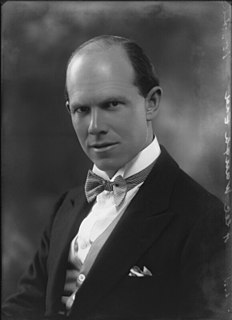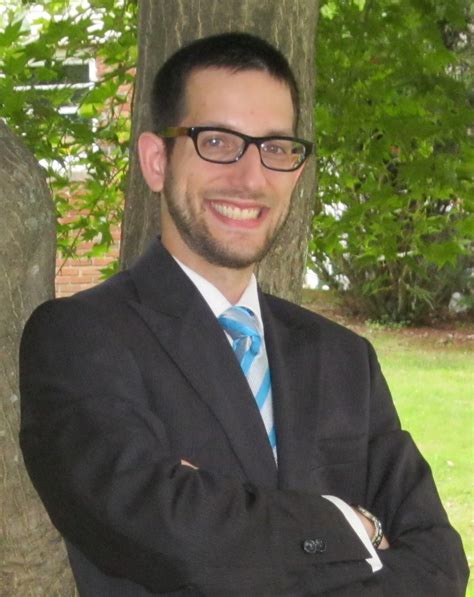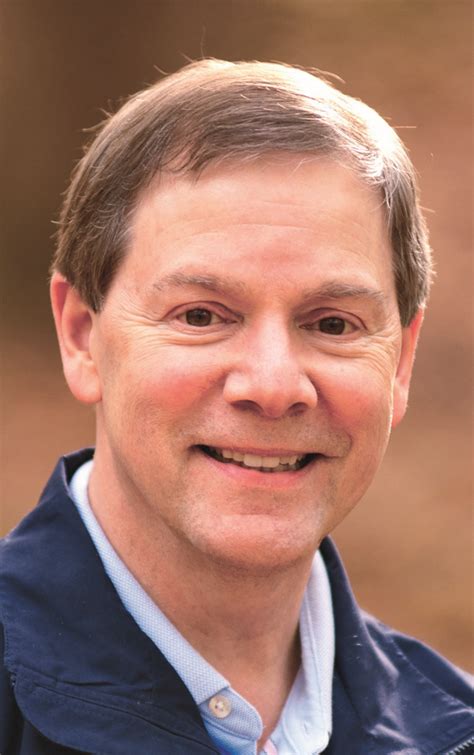A Quote by Alec Waugh
It is the thing that is most remote from the world in which we ourselves live that attracts us most. We are under the spell of what is distant from us. It is not our nature to desire passionately what is near at hand.
Related Quotes
We have all of us free access to all that is great, and good, and happy, and carry within ourselves a key to all the treasures that heaven has to bestow upon us. We starve in the midst of plenty, groan under infirmities, with the remedy in our own hand; live and die without knowing and feeling anything of the One only God, whilst we have it in our power to know and enjoy it in as great a reality as we know and feel the power of this world over us; for Heaven is as near to our souls as this world is to our bodies; and we are created, we are redeemed, to have our conversation in it.
When we feel we are powerless our ego most wants to change the things in our world. As we realize we have the power to change our reality the maturity that comes with that understanding changes us, and we find ourselves in acceptance of what is with less desire of feeling our need to change the world around us.
But mark, madam, we live amongst riddles and mysteries--the most obvious things, which come in our way, have dark sides, which thequickest sight cannot penetrate into; and even the clearest and most exalted understandings amongst us find ourselves puzzled and at a loss in almost every cranny of nature's works.
There is in us an instinct for newness, for renewal, for a liberation of creative power. We seek to awaken in ourselves a force which really changes our lives from within. And yet the same instinct tells us that this change is a recovery of that which is deepest, most original, most personal in ourselves. To be born again is not to become somebody else, but to become ourselves.
Prayer is not a way to get what we want to happen, like the remote control that comes with the television set. I think that prayer may be less about asking for the things we are attached to than it is about relinquishing our attachments in some way. It can take us beyond fear, which is an attachment, and beyond hope, which is another form of attachment. It can help us remember the nature of the world and the nature of life, not on an intellectual level but in a deep and experiential way. When we pray, we don't change the world, we change ourselves. We change our consciousness.
When we honestly ask ourselves which person in our lives mean the most to us, we often find that it is those who, instead of giving advice, solutions, or cures, have chosen rather to share our pain and touch our wounds with a warm and tender hand. The friend who can be silent with us in a moment of despair or confusion, who can stay with us in an hour of grief and bereavement, who can tolerate not knowing, not curing, not healing and face with us the reality of our powerlessness, that is a friend who cares.
I find very reasonable the Celtic belief that the souls of our dearly departed are trapped in some inferior being, in an animal, aplant, an inanimate object, indeed lost to us until the day, which for some never arrives, when we find that we pass near the tree, or come to possess the object which is their prison. Then they quiver, call us, and as soon as we have recognized them, the spell is broken. Freed by us, they have vanquished death and return to live with us.
My brethren, let me say, be like Christ at all times. Imitate him in "public." Most of us live in some sort of public capacity-many of us are called to work before our fellow-men every day. We are watched; our words are caught; our lives are examined-taken to pieces. The eagle-eyed, argus-eyed world observes everything we do, and sharp critics are upon us. Let us live the life of Christ in public. Let us take care that we exhibit our Master, and not ourselves-so that we can say, "It is no longer I that live, but Christ that lives in me."
Most of us have become Ecozombies, desensitized, environmental deadheads. On average, society conditions us to spend over 95% of our time and 99.9% of our thinking disconnected from nature. Nature's extreme absence in our lives leaves us abandoned and wanting. We feel we never have enough. We greedily, destructively, consume and, can't stop. Nature's loss in our psyche produces a hurt, hungering, void within us that bullies us into our dilemmas.
And if I remain in the dark about our purpose here, and the meaning of eternity, I have nevertheless arrived at an understanding of a few more modest truths: Most of us fear death. Most of us yearn to comprehend how we got here, and why-- which is to say, most of us ache to know the love of our creator. And we will no doubt feel that ache, most of us, for as long as we happen to be alive.
Trusting God means transferring our confidence and hope from ourselves to him, acknowledging that we have no ability in ourselves to live in a way that pleases him. Only he can change us by the power of his Spirit in us. This trust is manifested in a context of obedience in our lives to the biblical mandates God calls us to pursue. Training means acting upon that trust by doing things that help us rely upon God more and live out his desire for us.
The single most empowering thing we can do for ourselves is to transform fear. While fear contains tremendous power, it doesn't propel us forward and upward, but, rather, drags us down and chains us to the past. Freeing ourselves from fear is a loving intention because, as fear subsides, we are better able to access the soft, sweet power of our hearts, which naturally leads to loving ourselves and others more freely and completely.







































